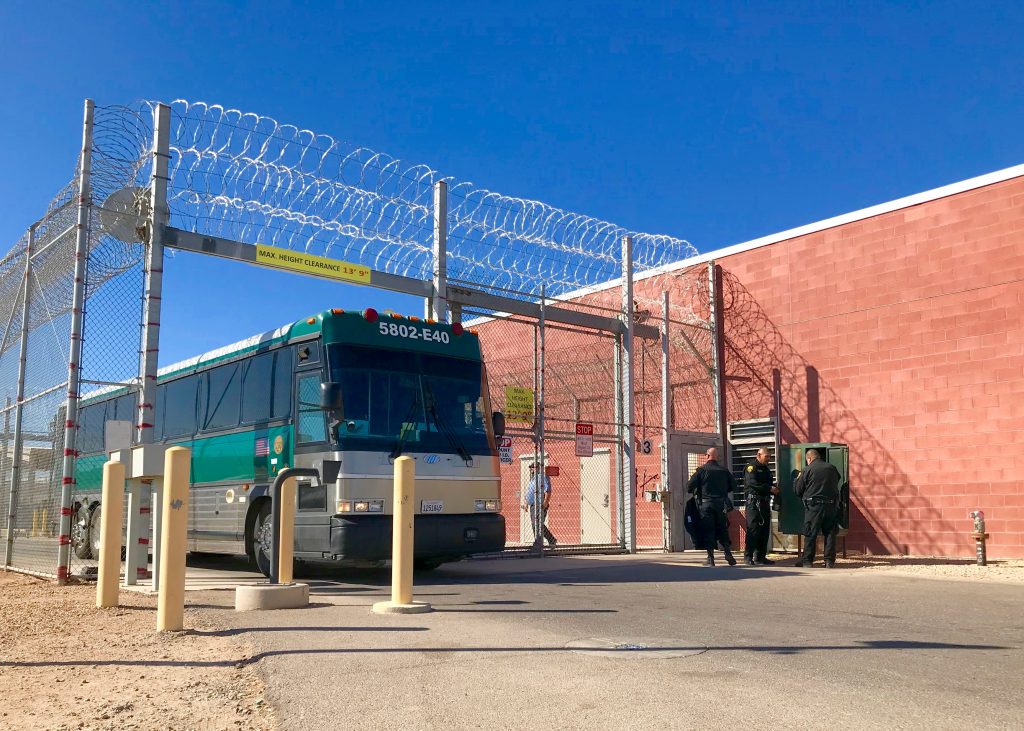On February 7, the Colorado Senate Judiciary Committee killed legislation that was almost guaranteed to increase housing and employment stability for people recently released from prison, thus reducing recidivism and the cost of incarceration to the state. Unfortunately, it proposed to do this by giving people money directly.
Senate Bill 24-012 would have authorized up to $3,000 per person to support re-entry from Colorado Department of Corrections (CDOC) custody. The $3,000 would have been disbursed over multiple payments, and contingent on participants enrolling in workforce training within six months of release.
According to Colorado Newsline, co-sponsor Senator James Coleman (D) said that the proposal had been prompting some “philosophical conversations” among legislators.
Someone on their way out of prison isn’t being released into a fresh start at life, or even into their old life as they knew it, but into a nightmarish obstacle course of fines and fees. Yet even though the number-one reason people go back to prison is that re-entry costs more money than they have, and even though states spend an average of somewhere around $30,000 per person per year to incarcerate them, the idea of simply handing cash to people who need it is unacceptable—we can’t just trust them to have money.
“I strongly believe there needs to be a level of accountability,” Colorado Senator Dylan Roberts (D) told the Denver Post. “The funds don’t come with any oversight at all.”
The Smart Sentencing Adjustments Act would allocate $20,000,000,000 altogether.
Contrast this to a federal proposal intended to address mass incarceration in state prisons—one that’s received almost no attention since it was introduced to Congress in April 2023.
The Smart Sentencing Adjustments Act would support grant funding for states to reduce their prison populations by at least 20 percent. States that applied could receive grants not to exceed $70,000,000 each, with the Act’s total allocation not to exceed $2,000,000,000 each fiscal year for the next 10 years. So, $20,000,000,000 altogether.
Naturally, there needs to be a level of accountability and oversight for funds like that. States are expressly prohibited from using the grant money to build or maintain correctional facilities; hire private contractors to build or maintain correctional facilities for them; pay corrections officers; purchase equipment; or “create or fund programs that would increase incarceration.”
Furthermore, during the three-year grant period states aren’t supposed to enact any policies that would increase incarceration. For example, policies that lengthen sentences for people already convicted; impose longer sentences on people for being convicted too many times; decrease access to parole or other forms of early release; or increase mandatory minimums.
If they do any of the above, they have to pay back 10 percent of the grant, and the federal government won’t give them another one for a whole three years. (The Act only allow states to receive two consecutive grants anyway.)
Why wouldn’t states just use the funding how they want? In Georgia, officials could put that $70,000,000 toward such priorities as the construction of new prisons, or a salary raise sufficient to entice anyone to work at them.
Having been incarcerated by the Georgia Department of Corrections for the past 30-plus years, I can only speculate as to how this might work elsewhere, but if I’m a State then I’m taking my $70,000,000 and worrying about those penalties later. States can be trusted with money.
Current cash assistance for people leaving CDOC custody is $100 and a bus pass.
Testifying against SB 24-021 in late January, a CDOC representative expressed that in addition to the concerns about money, the language of the bill “unfairly limits the department’s and participants’ ability to select the re-entry provider.”
While I must commend CDOC in advocating for participants to have a seat at the table, to my mind the bill didn’t treat the department that unfairly. It would have left the selection of re-entry service provider entirely to CDOC. The only requirement would have been that CDOC choose a non-profit.
The CDOC rep further cautioned that these types of programs don’t necessarily produce results; the only thing they do is increase housing stability for some participants. She stressed the importance of routing re-entry funding through CDOC, which is committed to the financial stability of those released from its custody.
Current cash assistance provided by CDOC is $100 and a bus pass, but admittedly she does have a point. If some degree of housing stability for some participants simply isn’t enough, and the government should only fund that which can guarantee a long-term place of residence for everyone, then the recipients we can trust with the money are corrections departments.
Photograph via California Department of Corrections & Rehabilitation





Show Comments